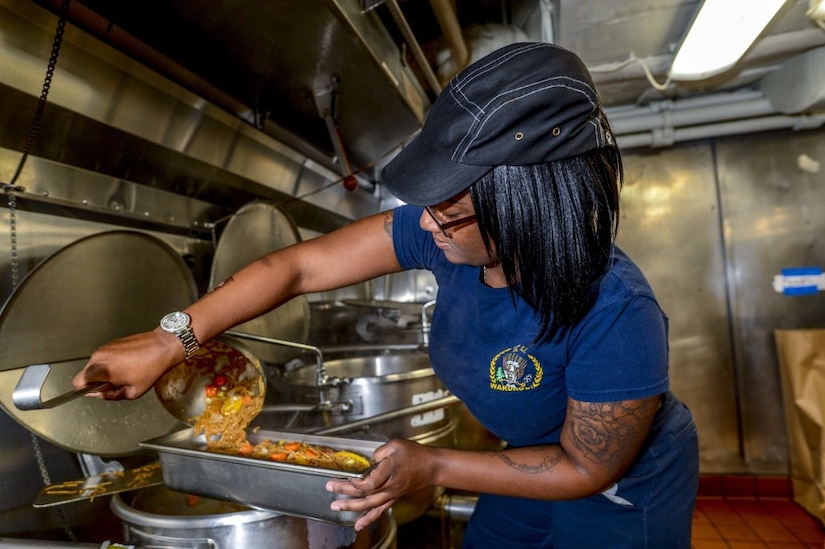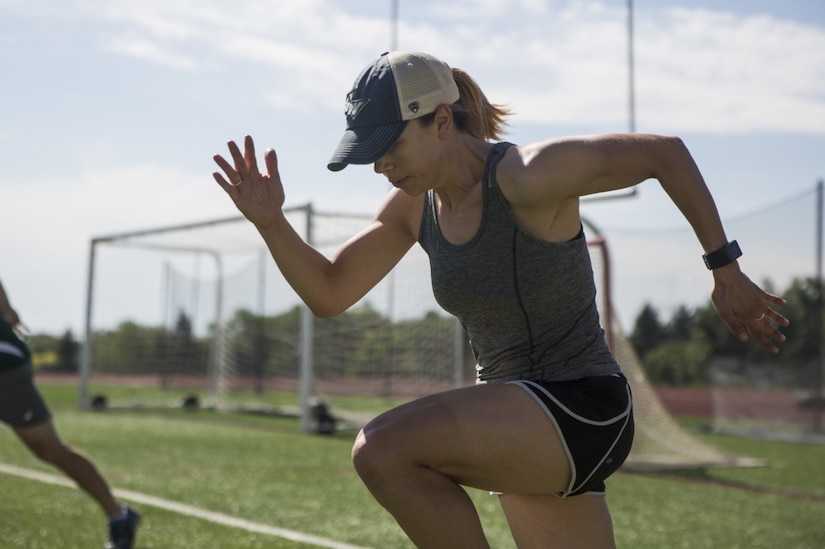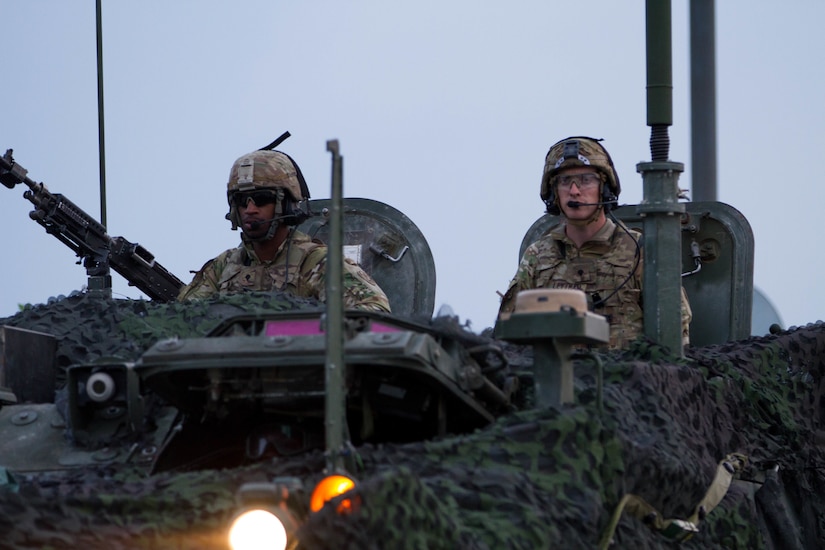By Navy Petty Officer 3rd Class Brooke Macchietto, USS
George H.W. Bush
ATLANTIC OCEAN -- It’s a new day as the alarm clock goes
off.
Navy Petty Officer 2nd Class Shatia Carroll flings the
covers off and begins her morning routine. She gets dressed before she dresses
her son, but they brush their teeth together.
After getting her son breakfast, she drives him to preschool
and makes her way to work. She arrives at the ship by 7:15 a.m.
Carroll, from Jackson, Tennessee, is a single mother to her
3-year-old son, Jayden. She’s also a culinary specialist assigned to the
aircraft carrier USS George H.W. Bush, home-ported at Naval Station Norfolk,
Virginia.
Since returning from a seven-month deployment, the ship has
sustained a busy underway schedule, forcing Carroll to leave her son with her
sister and mother while she is gone.
Military Service, Motherhood
“The hardest part is being away from my son, because he
changes every day,” Carroll said. “Before I left for deployment, he was saying
a couple words. And then I came back home, and he was saying whole sentences.”
These changes don’t slow down as kids get older. Navy Petty
Officer 1st Class Megan Miller, a mother of three who hails from Oakland,
Illinois, recalled striking memories of her children at a younger age.
“I just watched my oldest, Marcus, drive around the cul-de-sac
in the car and I came to this thought of him doing it on his bike in the same
exact cul-de-sac and just how fast time flies by,” Miller said.
Being a mother in the Navy is undeniably difficult, but it
is also rewarding, particularly when mothers are able to get their kids
involved in their job.
“They enjoy coming to the ship and seeing all the boats at
anchor and everything in the fo’c’sle,” Miller said. “They like hearing my
stories about being underway and some of the stuff we have done, so they
definitely think it is pretty cool.”
Support From Home, Work
Support from home is paramount to being a successful parent
while in the military, but being a successful sailor while raising children
also requires support from work.
“You have to be open and communicate with your chain of
command if you have issues,” Miller said.
With the right mentality and the right team, being a sailor
and a mom is far from impossible.
“Stay encouraged and keep a positive mindset because it’s
easy to become stressed having to be away from your child,” Carroll said. “As
long as you have support from your friends and family you can still be a mother
in the Navy.”
Carroll and Miller are counting down the minutes until they
are with their children again.
“I will call him and he will say, ‘Mommy, when are you
coming to pick me up?’” Carroll said. “And, I’ll say, ‘As soon as I get back
home -- as soon as we pull in -- I am coming to get you.’”










